Ballads of Hyrule
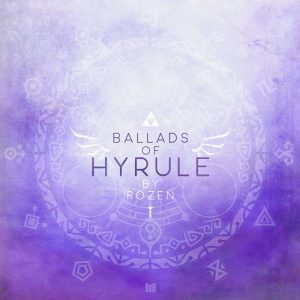 |
Album Title: Ballads of Hyrule |
| Record Label: Materia Collective | |
| Catalog No.: MCOL-0106 | |
| Release Date: May 1, 2018 | |
| Purchase: Buy at Bandcamp |
Overview
Legend of Zelda fans, rejoice: two noteworthy Zelda albums have made their respective debuts less than a week apart from one another. Releasing a tribute album in the wake of Breath of the Wild, an original soundtrack as massive as it is innovative, is a daunting task, but Sins of Hyrule producer Rozen just might be up to the task. With Ballads of Hyrule, Rozen once again aims to reinterpret classic Zelda tunes through orchestration, this time with a more “contemplative” and “nocturnal” approach according to the album description. Has Rozen accomplished his self-stated goal of scoring “a night walk across the lands of Hyrule” for fans of the franchise?
Body
Ballads of Hyrule turns out to have more in common with Breath of the Wild than just a timely release date. Though the latter has only been listenable in game form for a little over a year, Rozen has managed not only to reference the new soundtrack, but to contrast it with its deeper musical roots in the series. “Kakariko Village,” for example, blends together A Link to the Past and Breath of the Wild’s takes on the titular theme, pitting cello against shakuhachi and mandolin for a playful and percussive mashup. “Stables ~ Epona” warms up with pizzicato bass, harp, and acoustic guitars on a plucky rendition of Breath of the Wild’s “Stables” theme – until a harmonica steps in for a throwback to “Epona’s Song.” “Zora’s Domain” is traditionally an Ocarina of Time tune, but Rozen models his arrangement after the Breath of the Wild version, and in doing so captures the same impressive moments of modulation. Best of all Breath of the Wild tributes on the album is Rozen’s take on “Kass’s Theme”: a peppery waltz dominated by plucked string and piano textures, tambourine, and – of course – accordion.
Breath of the Wild isn’t the only Zelda soundtrack getting love and attention on the album, either. The Wind Waker is brought to cinematic life through precious renditions of “My Grandma” and “Aryll’s Theme,” alongside a stunning arrangement of “Dragon Roost Island.” “Sheik’s Devotion” and “Song of Storms” take their respective Ocarina of Time themes in unexpected directions, with the former entrusting the theme of Sheik to a soprano in a dynamic new orchestral rendition, and the latter forging a mechanical texture out of metallic percussive instrumentation over a recording of rainfall. Better still is the trilogy of arrangements at the tail end of the album, each named for one of the three goddesses of the Zelda universe. “Nayru’s Love” features rich harmonies and percussive spunk in equal measure while inverting “Zelda’s Lullaby” in clever ways. “Din’s Fire” works flickering winds and incendiary brass into a track worthy of its namesake, and one which makes fun nods to Ocarina of Time’s “Hyrule Field” and A Link to the Past’s “Dark World” at that. The final of the three, “Farore’s Wind,” is a rousing love letter to some of Skyward Sword’s most memorable themes: “Romance in the Air,” “Skyloft,” and “Ballad of the Goddess.” True, the album gives most of its time to three-dimensional entries in the Zelda series. That doesn’t mean, however, that Ballads of Hyrule can’t spare a tear-jerking moment for “Ballad of the Windfish” from Link’s Awakening.
The album is a solid arrangement effort, albeit a bit inconsistent in concept and production. While some arrangements abide by the “contemplative” and “nocturnal” theme promised by Rozen, many seem to ignore the restraint in favor of a more bombastic approach, resulting in moments that seem to clash with the proposed aesthetic. There are moments of thematic clashing within the arrangements themselves as well: “Fairy’s Tears” is bookended by a dark, ambient soundscape that doesn’t mesh well with the bright staccato strings that punctuate the track, and the choice to end the aforementioned “Farore’s Wind” with a snippet of the Wind Waker’s main theme is odd given the lack of reference to the theme anywhere else in the track. Finally, there are moments, few but notable, where certain sections of the orchestra – the winds near the end of “Stables ~ Epona,” or the strings in “Fairy’s Tears” – come across as campy and a little bland, likely due in part to the VSTs involved in the creation of the album. These instances are surprising given the album’s stellar production overall.
Summary
Ballads of Hyrule is caught somewhere between an evening stroll and a night at the concert hall. That may not fall exactly in line with Rozen’s promise an album calm and reflective in nature, but as far as faults go, this one is pretty inconsequential. What matters is that Ballads of Hyrule delivers on the promise of a pleasant – and sometimes excellent – orchestral tribute to the Legend of Zelda. If the eccentric new musical direction of Breath of the Wild has left any Zelda fans yearning for a more traditional trip down memory lane, they can count on Ballads of Hyrule to be their link to the past.
Do you agree with the review and score? Let us know in the comments below!
4
Posted on May 4, 2018 by Reilly Farrell. Last modified on May 4, 2018.

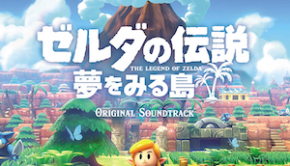
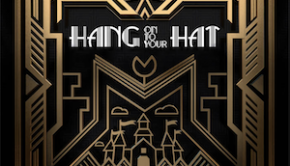
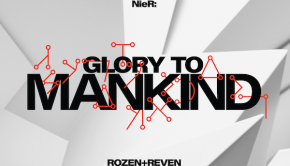
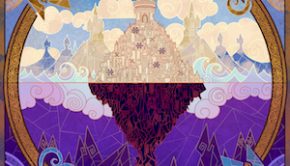










Rozen’s night strolls are pretty epic. I still felt pretty calm even during those “bombastic” moments. 😉